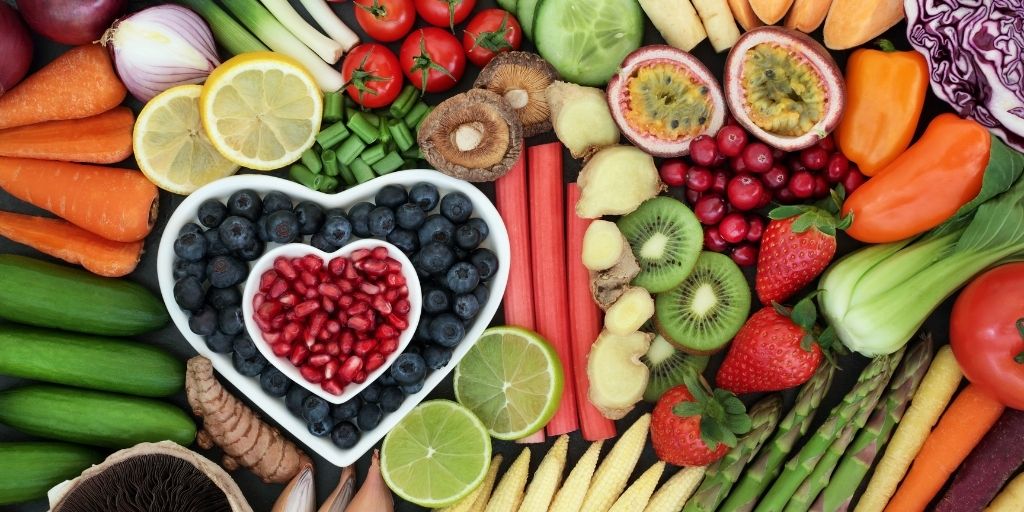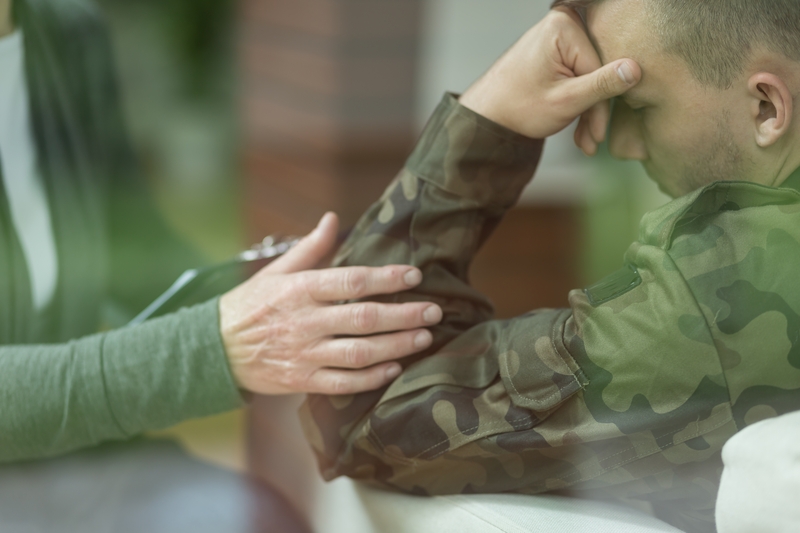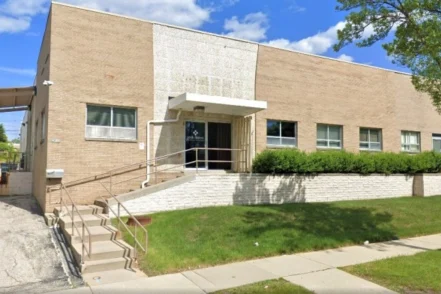Do the Foods You Eat in Early Recovery Matter?

You may hear folks in recovery with a bit of time under their belt tell you not to worry about what foods you eat in early recovery. In fact, some sobriety literature even encourages carrying around bags of candy to replace the sugar that you may have been consuming in alcohol.
That particular advice is a myth. But it can be helpful to take the pressure off your early recovery by focusing purely on your sobriety.
Where Does the Advice to “Eat What You Want” Come from?
The advice to eat whatever you want—more specifically to eat candy—is covered in the literature of Alcoholics Anonymous. The Big Book says, “Many of us have noticed a tendency to eat sweets and have found this practice beneficial.”
Living Sober, another AA book, goes on to say that eating something sweet kills the desire for alcohol.
“Some of us think it is more than the taste that helps quell the impulse toward alcohol. It may also be, in part, just substituting a new set of physical actions: getting a soft drink, a glass of milk or fruit juice, and some cookies or some ice cream, then drinking or chewing, and swallowing.”
AA goes on to say that people with diabetes would benefit from sugar, in moderation.
“Like almost any other ideas, the suggestions in this booklet can be misused. For example, take the notion of eating candy. Obviously, alcoholics with diabetes, obesity, or blood-sugar problems have had to find substitutes, so they would not endanger their health, yet could still get the benefit of the candy-eating idea in recovery from alcoholism. (Many nutritionists favor protein-rich snacks over sweets as a general practice.) Also, it’s not good for anybody to overdo this remedy. We should eat balanced meals in addition to the candy.”
(Many nutritionists favor protein-rich snacks over sweets as a general practice.) Also, it’s not good for anybody to overdo this remedy. We should eat balanced meals in addition to the candy.
~ Living Sober
I would strongly argue against including candy in the foods you eat in early recovery, especially if you have diabetes. But, there are some benefits to not restricting the foods you eat in early recovery.
What Are the Benefits of Eating What I Want?
Early recovery is hard. You no longer have your crutch to rely on. You may also feel like you’re in a world that you don’t recognize.
It’s like someone has turned on bright white lights and turned up the volume. Whereas when you were using alcohol, you were so out of it that everything just kind of blurred together. Heck, maybe you were even the one making all that noise!
Those first few months — and even your first year — of sobriety can be really disorientating. You’ll need to get used to a new schedule. You also need to find time to fit in all of the extra recovery things you need to do to stay sober:
- Going to lots of meetings
- Step work or therapy
- Regular meetings with friends in recovery
Sobriety can feel like a full-time job.
Sobriety can feel like a full-time job. It’s like the advice not to date anyone in the first year.
That’s why people tell you not to worry about what you eat. It’s like the advice not to date anyone in the first year. Folks with recovery experience will tell you not to worry about adding more to your plate by counting calories and hopping on the scale everyday.
Letting go of moderation and focusing on recovery may seem helpful. However, let’s look at why this advice could be harmful and why the foods you eat in early recovery are important.
Why Eating Sugar Isn’t a Good Idea for Recovery
There are a whole host of reasons why eating sugar and processed foods isn’t good for you in recovery. Not least because it can harm your health.
Eating too many processed and sugary foods can increase your risk of diabetes, heart disease, and even cancer.
Eating too many processed and sugary foods can increase your risk of diabetes, heart disease, and even cancer.
For people in recovery, that risk is greater for a number of reasons:
- Your body needs nutrients to recover from years of substance abuse.
- Sugar causes sharp rises and crashes to your blood sugar which could actually cause a craving to use and definitely cause cravings for more sugar.
- Regular use of sugar and highly processed foods can cause your brain to favor these foods.
- The body does not need added sugar as a nutrient. Your body will struggle to send fullness cues and you’ll end up eating more.
- You may gain weight.
- You could experience decreased energy levels.
Here is a quick reference list of sugar-heavy items that shouldn’t be among the foods you eat in early recovery:
- All types of candy
- Pastries and desserts
- Granola and other cereals
- Sugary drinks, including fruit juice and iced tea
- High-fructose corn syrup
- Some pre-made soups
- Canned fruit
- Low fat yogurt
- Flavored coffees and other ready-made drinks from coffee shops
- Sauces: ketchup, BBQ sauce, some spaghetti sauces
Healthy Foods You Eat in Early Recovery
The American Heart Association recommends that women limit sugar intake to six teaspoons (or 25 grams) per day. Men should have no more than nine teaspoons (37.5 grams) per day.
Women should limit sugar intake to six teaspoons (or 25 grams) per day. Men should have no more than nine teaspoons (37.5 grams) per day.
~ American Heart Association
As well as limiting your sugar intake, the foods you eat in early recovery should include:
Leafy Greens
These are great for detoxing the body and packed with nutrients. Some examples are:
- Kale
- Spinach
- Chard
- Other dark green vegetables
Healthy Fats
These help support the body’s vital organs, especially the brain and heart. Foods you eat in early recovery for healthy fat could include:
- Salmon
- Sardines
- Other oily fish
- Avocado
- Eggs
- Walnuts
Healthy fats, like those in oily fish, eggs, and avocado, help support the body’s vital organs.
Whole Grains
Eating whole grains, like brown rice, is a great way to sustain energy levels. Some whole-grain foods you eat in early recovery could include:
- Whole-wheat bread
- Oatmeal
- Wild rice
- Whole-wheat pasta
Water
Staying hydrated is critical. Water helps you:
- Maintain energy
- Function properly
- Recover from the damage of addiction
Water can also help fight cravings. If you don’t like plain water, try adding a squeeze of lemon or lime, or even some crushed berries for flavor.
Stay hydrated by drinking water or unsweetened green tea to help improve your recovery.
Green Tea
Unsweetened green tea is packed with antioxidants can help you:
- Lose weight
- Improve your immune system
- Lower your blood pressure
Why the Foods You Eat in Early Recovery Matter
The foods you eat in early recovery from addiction can enhance your sobriety and recovery in many ways. Making conscious, healthy choices is an important step to take.
You can choose to embark on a totally new diet or just trying to clean out your current diet. But finding the right balance between eating whatever you want and making healthy choices is important. If you feel confident in your diet, you can focus more energy on recovery.
Articles About Alcohol & Treatment

A Guide to Veterans’ Drug Rehab & Addiction Treatment
A Guide to Veterans’ Drug Rehab & Addiction Treatment Addiction is no respecter of persons. It’s an enemy that can

How Your Environment Impacts Recovery
How Your Environment Impacts Recovery Learning how your environment impacts recovery is an important lesson to learn. In 2010, I

Do the Foods You Eat in Early Recovery Matter?
Do the Foods You Eat in Early Recovery Matter? You may hear folks in recovery with a bit of time
Top National Treatment Centers
-
 Florida
Florida1 Solution Detox – CLOSED
2901 Broadway Ave West Palm Beach, Florida 33407
Treatment Programs
- Alcohol Rehab
- Opioid Addiction
- Drug Rehab
- +0
-
 California
California10 Acre Ranch
5953 Grand Avenue Riverside, California 92504
Treatment Programs
- Alcohol Rehab
- Dual Diagnosis
- Opioid Addiction
- +4
-
 Wisconsin
Wisconsin10th Street Comprehensive Treatment Center
4800 South 10th Street Milwaukee, Wisconsin 53221
Treatment Programs
- Alcohol Rehab
- Opioid Addiction
- Drug Rehab
- +4
-
 Oklahoma
Oklahoma12 and 12
6333 East Skelly Drive Tulsa, Oklahoma 74135
Treatment Programs
- Alcohol Rehab
- Dual Diagnosis
- Opioid Addiction
- +4